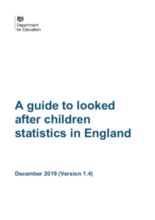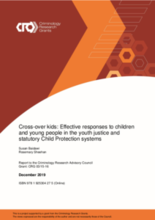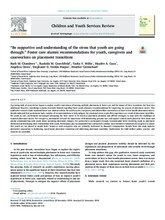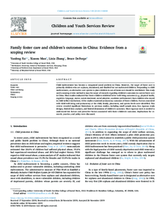Displaying 601 - 610 of 2221
The current study uses a nationally representative sample of adolescent foster youth in the U.S. to test a model of the influences of placement-related factors on school engagement – namely, foster youth’s perceptions of security in their foster placements, their reports of education-specific involvement by foster caregivers, and the mediating potential of adolescents’ expectations for their future.
The following article reports upon recent research that explored the perceptions of professionals of the issues that affect the sexual and criminal exploitation of children in care, along with a discussion of the effectiveness of current responses to these issues and the challenges that professionals face.
This article describes the results of a narrative literature review on empirical research examining the outcomes and/or experiences of unaccompanied refugee minors in family foster care.
The following article reports upon recent research, which explored the perceptions of professionals of the issues that affect the sexual and criminal exploitation of children in care, along with a discussion of the effectiveness of current responses to these issues and the challenges that professionals face.
This document provides a guide to looked after children statistics published by the UK Department for Education.
The study set out to examine the extent to which children and young people before the Criminal Division of the Victorian Children’s Court in Australia were also clients of the statutory Child Protection system, and to better understand the characteristics of this group.
This qualitative research study examined foster care alumni’s advice for youth in care, caregivers, and child welfare caseworkers on how to best handle placements moves.
This study used a scoping review method to map the scope of research regarding children’s outcomes in current foster care in China.
Theoretically informed by intersectionality, queer, and feminist theories, the purpose of this community based qualitative research study was to gain a nuanced understanding of the experiences of 25 diverse LGBTQ former foster youth before, during, and after being in foster care.
The authors of this study investigated incidence of secondary traumatic stress (STS) and psychological predictors relevant to secondary and primary stress appraisal in UK foster carers.





